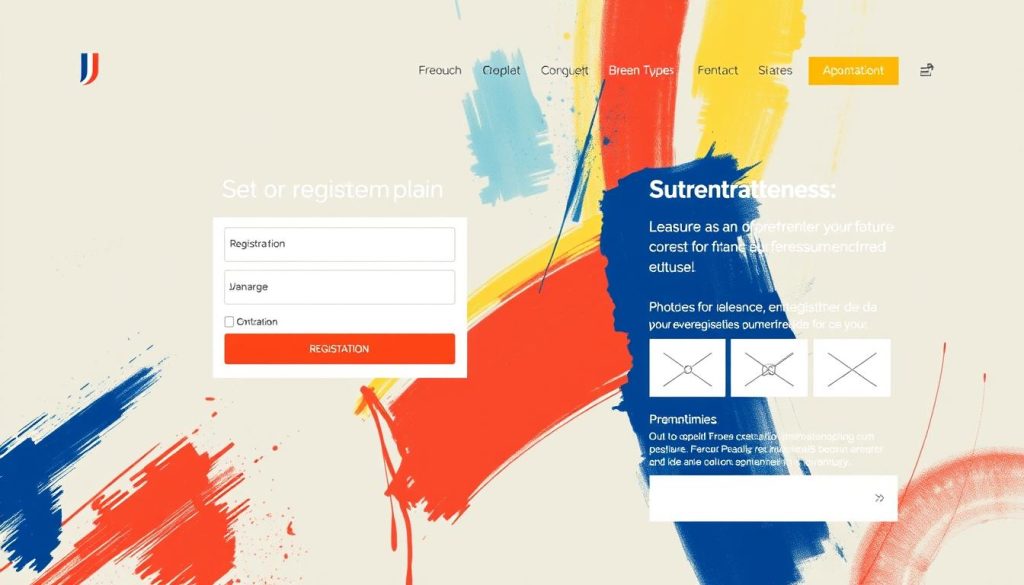Are you considering a career that offers independence, flexibility, and the opportunity to leverage your expertise to drive business success? As the demand for specialized knowledge continues to rise across various industries, professionals are turning to freelance consulting as a viable and rewarding career path.
This shift is driven by the unique advantages that consultant roles offer, both to the professionals providing the services and to the clients who benefit from their expertise. In this comprehensive guide, we will explore the essentials of building a successful career as an independent consultant, including legal structures, pricing strategies, client acquisition, and financial management.
Table of Contents
Key Takeaways
- Understanding the growing demand for freelance consulting services and its implications for professionals.
- The unique benefits and challenges associated with a career in freelance consulting.
- Essential skills and mindset required to succeed as an independent consultant.
- Overview of the key topics covered in this comprehensive guide.
- Strategies for transitioning into or starting a successful freelance consulting career.
Understanding Freelance Consulting
As a freelance consultant, you provide specialized services to companies on a project basis, helping them navigate complex challenges. This advisory role involves delivering high-quality expertise to businesses, enabling them to achieve their objectives.
What Is a Freelance Consultant?
A freelance consultant is an independent professional who offers expertise and solutions to businesses on a project basis. Unlike traditional employees or agency consultants, freelance consultants work on their own terms, choosing projects that align with their skills and interests. They operate across various métiers or industries, including digital, management, health, and banking, providing services tailored to each client’s needs.
Key Skills and Characteristics of Successful Consultants
To excel as a freelance consultant, one must possess a combination of key compétences or skills. These include:
- Analytical thinking and problem-solving abilities
- Active listening and strong communication skills
- An entrepreneurial spirit and adaptability
- Continuous learning and staying updated with industry trends
Successful consultant freelance professionals also exhibit certain personality traits, such as a proactive approach, resilience, and a client-centric mindset. For more insights on how to excel in this field, you can explore resources like expert guidance for independent mission consultants.
Benefits and Challenges of Freelance Consulting

As a freelance consultant, you are not just your own boss, but also the architect of your career. Being a freelance consultant means having the autonomy to choose your missions and clients, setting your rates, and deciding how to run your business. This independence is a double-edged sword, offering numerous benefits but also presenting unique challenges.
Advantages of Working as an Independent Consultant
One of the primary advantages of being a freelance consultant is the flexibility it offers. You have the freedom to select projects that align with your interests and skills, work from any location, and manage your schedule. This flexibility can lead to a better work-life balance and increased job satisfaction. Additionally, as a consultant, you have the potential to earn more by setting your own rates and taking on multiple missions for various clients and entreprises. The diversity of projects also fosters professional growth, exposing you to different industries and business challenges, which can enhance your expertise and adaptability in the market or marché.
Common Obstacles and How to Overcome Them
Despite the benefits, freelance consulting comes with its set of challenges. Irregular income, the need for self-marketing, and administrative tasks are common obstacles. To overcome these, it’s essential to develop a robust financial plan, invest time in marketing your services, and streamline your administrative processes. Moreover, maintaining a disciplined work routine can help in staying motivated and productive. As emphasized by a seasoned consultant, « The key to successful freelance consulting lies in balancing the freedom of being your own boss with the discipline required to thrive in a competitive marché. » By understanding these challenges and proactively addressing them, freelance consultants can navigate their careers more effectively and achieve a fulfilling professional life in their travail or work.
Choosing the Right Legal Structure for Your Consulting Business
The legal structure you choose for your consulting business can significantly affect your taxation, liability, and potential for growth. Making the right choice regarding your legal status is crucial for the proper development of your activity.
Micro-Enterprise (Auto-Entrepreneur) Option
The Micro-Enterprise or Auto-Entrepreneur status is a simplified regime for freelancers, particularly suited for those with low start-up costs or those testing their business idea. To register as an auto-entrepreneur in France, you must declare your activity to the relevant authorities and comply with specific revenue caps.

Individual Enterprise (EI) Structure
The Individual Enterprise (EI) structure offers more flexibility than the Micro-Enterprise regime, allowing for higher revenue without the need for complex administrative formalities. It’s a suitable option for consultants expecting a significant income who still wish to maintain simplified management.
Company Structures: SASU and EURL
For consultants planning to scale their business, bring on partners, or protect personal assets, forming a company such as SASU (Simplified Joint Stock Company) or EURL (Single-Member Limited Liability Company) can be advantageous. These structures provide a more formal framework and can enhance your professional image.
Salary Portage: The Hybrid Option
Salary portage, or portage salarial, is a hybrid status that combines the benefits of being an independent consultant with some employment advantages. It allows you to carry out missions for different companies through a portage company, providing a balance between independence and security.

When choosing a legal structure, consider factors such as administrative complexity, tax implications, social security benefits, and growth potential. Each status has its particularities, and the right choice depends on your specific situation, goals, and projected income.
Essential Steps to Launch Your Freelance Consulting Business
Establishing a freelance consulting business involves several crucial initial steps. To ensure a solid foundation, it’s essential to complete the necessary formalities, set up appropriate financial arrangements, and create a distinct business identity.
Completing Registration Formalities with INPI
Since January 1, 2023, all procedures for creating, managing, and ceasing activity take place on the INPI’s one-stop shop website. To get started, freelance consultants must complete the activity declaration form. Upon registration, you will receive your SIRET and SIREN numbers along with your APE code within 7 to 15 days. This step is crucial for the legitimacy and security of your entreprise.
Setting Up Your Professional Banking
Separating personal and professional finances is vital for the sécurité of your patrimoine personnel. Since 2022, personal and professional assets are separate for all legal forms, making it essential to set up a professional banking account. This will help you manage your business finances effectively and maintain a clear distinction between personal and business transactions.
Creating Your Business Identity and Brand
Creating a compelling business identity involves several key elements, including naming, branding, and visual identity development. Your business name and brand should reflect your values and services, helping you stand out in the market. Additionally, defining your service offerings and specialization areas will enable you to attract your target clientele. Establishing a professional online presence through a site and social media profiles is also crucial. For more detailed guidance on administrative procedures, you can refer to resources like Mastering Freelance Administrative Procedures.
Furthermore, setting up proper accounting and administrative systems from the beginning will streamline your operations. It’s also important to consider insurance requirements and liability considerations to protect your business. By following these essential steps, you can establish a strong foundation for your freelance consulting business and set yourself up for long-term success.
Determining Your Consulting Rates and Pricing Strategy
Determining your consulting rates and pricing strategy is a foundational step in establishing a successful freelance consulting career. As a consultant freelance, your pricing not only reflects your expertise and the value you bring to clients but also impacts your profitability and market competitiveness.
Market Rate Analysis
Conducting a thorough market rate analysis is essential to benchmark your pricing against industry standards. This involves researching the average rates charged by other consultant freelance professionals in your sector and at your level of experience. For instance, a beginner freelance marketing consultant might charge around €300 per day, while those with 3-7 years of experience could charge €390, and experienced consultants with over 8 years of experience might command €620 per day.
Calculating Your Daily Rate (TJM)
To calculate your daily rate (TJM – Taux Journalier Moyen), you need to factor in your expertise, business expenses, taxes, and desired income. A step-by-step guide to calculating your TJM involves determining your annual salary requirement, adding business expenses, and then dividing by the number of working days. For more detailed steps, you can refer to resources like calculating your TJM.
Pricing Models
Freelance consultants can adopt various pricing models, including hourly, daily, or project-based rates. The choice of pricing model depends on the nature of the project, client preferences, and your personal preference. For example, hourly rates might be suitable for projects with uncertain scopes, while project-based pricing can be more appealing for clients with fixed budgets.
| Pricing Model | Description | Advantages |
|---|---|---|
| Hourly Rate | Charging clients by the hour worked. | Flexible for projects with changing scopes. |
| Daily Rate (TJM) | Charging a fixed rate per day worked. | Simplifies billing and client expectations. |
| Project-Based Pricing | Charging a fixed price for the entire project. | Aligns with client budgets and incentivizes efficiency. |
By understanding the different pricing models and conducting a thorough market analysis, you can set a competitive and sustainable pricing strategy that supports your business goals as a consultant freelance.
Finding and Securing Your First Consulting Clients
To kick-start your freelance consulting career, it’s essential to develop effective strategies for finding and securing your initial clients. As a consultant freelance, your success depends on your ability to market your services and build a strong professional network.
Building an Effective Freelance Consultant Profile
Creating a compelling profile is crucial for showcasing your compétences and attracting potential clients. Your profile should highlight your unique value proposition, expertise, and previous experiences. Ensure that your profile is complete, up-to-date, and optimized for relevant keywords to improve visibility on freelance platforms.
Leveraging Specialized Platforms and Networks
Utilizing specialized freelance platforms can significantly enhance your visibility to potential entreprises looking for consulting services. Platforms like Freelance-Consulting offer a direct matching model between consultants and entreprises, streamlining the process of finding missions that fit your compétences and interests.
Direct Outreach and Networking Strategies
Effective networking is vital for securing your first consulting clients. This involves both online and offline strategies, including marketing yourself on professional networks like LinkedIn, attending industry events, and engaging in relevant online communities. By directly reaching out to potential clients and showcasing your expertise, you can increase your chances of securing projects in your desired marché.
Creating Professional Consulting Contracts and Agreements

The foundation of a successful consulting engagement lies in a clear, detailed contract that outlines the scope, terms, and expectations. As a freelance consultant, having a well-structured contract is essential for protecting your interests and ensuring a smooth collaboration with your clients.
Essential Elements of a Consulting Contract
A comprehensive consulting contract should include several key elements. These are the scope of work, deliverables, timeline, payment terms, and termination conditions. For instance, the contract should clearly define the mission objectives, the services to be provided, and the expected outcomes.
| Contract Element | Description | Example |
|---|---|---|
| Scope of Work | Detailed description of the services to be provided | Market analysis and strategy development |
| Payment Terms | Structure for payments, including deposits and late penalties | 30% deposit, with milestone payments |
| Termination Conditions | Procedures for ending the contract | 30-day notice period |
| Sécurité Sociale | Provisions for social security and insurance | Consultant is responsible for their own social security |
Confidentiality and Intellectual Property Clauses
Confidentiality and intellectual property (IP) clauses are critical components of a consulting contract. These clauses protect sensitive client information and clearly define the ownership of work products created during the engagement. For more information on the status of freelance consultants, you can visit this resource.
To ensure confidentiality, the contract should include a clause that obliges both parties to maintain the confidentiality of sensitive information. Regarding IP, the contract should specify whether the consultant or the client retains ownership of the work products.
Managing Client Relationships and Delivering Value
As a freelance consultant, building strong relationships with clients is key to delivering successful projects and fostering repeat business. To achieve this, it’s essential to understand the client’s needs and expectations from the outset.
Effective Communication Throughout Projects
Effective communication is the backbone of any successful consulting project. Regular updates and progress reports help keep clients informed and engaged throughout the project lifecycle. This can be achieved through scheduled meetings, email updates, or collaborative project management tools. By maintaining open lines of communication, consultants can address client concerns promptly and ensure that their expectations are being met.
Setting and Managing Client Expectations
Setting realistic client expectations from the beginning is crucial for the success of a consulting project. This involves clearly defining the project’s scope, timelines, and deliverables. It’s also important to manage client expectations throughout the project by providing regular updates and addressing any concerns or changes promptly. By doing so, consultants can prevent misunderstandings and ensure that clients remain satisfied with the project’s progress.
Methodologies for Successful Project Delivery
A structured methodology is essential for delivering successful consulting projects. This typically involves a phased approach, including discovery, analysis, planning, execution, and evaluation. By following a proven methodology, consultants can ensure that they deliver high-quality results that meet client needs. For more insights on optimizing freelance management strategies, you can visit this resource.
By implementing these strategies, freelance consultants can build strong, long-term relationships with their clients, leading to repeat business and a strong professional reputation.
Financial Management for Freelance Consultants
Effective financial management is the backbone of a sustainable freelance consulting career. As a freelance consultant, you are not only responsible for delivering high-quality services but also for managing the financial aspects of your business. This includes understanding your tax obligations, separating personal and professional assets, and planning for irregular income.
Tax Obligations and Reporting Requirements
As a freelance consultant in France, you fall under the BNC (non-commercial profits) category, which has specific tax implications. You are required to make quarterly estimated tax payments and annual reporting. Understanding your tax obligations is crucial to avoid any penalties. It’s essential to familiarize yourself with the régime applicable to your business structure, whether it’s auto-enterprise, individual enterprise with IR, SASU, or EURL.
For instance, the average salary of a beginning consultant can vary significantly depending on the sector of activity. Proper tax planning can help you manage your chiffre affaires effectively and ensure compliance with tax regulations.
Separating Personal and Professional Assets
Since 2022, personal and professional assets are considered separate for all legal forms, including auto-enterprise, individual enterprise with IR, SASU, and EURL. This separation is vital to protect your patrimoine personnel. Maintaining a clear distinction between personal and professional finances helps in managing your business efficiently and reduces personal financial risk.
To achieve this, consider opening a dedicated business bank account to keep your professional transactions separate from personal ones. This not only aids in financial organization but also simplifies tax reporting and sécurité for your personal assets.
Planning for Irregular Income
Managing irregular income is a significant challenge for freelance consultants. To mitigate this, it’s advisable to create a buffer fund for lean periods. This fund acts as a financial cushion, allowing you to continue your activité without undue stress during months when your income might be lower.
Additionally, planning your finances on a monthly basis can help you navigate the fluctuations in your chiffre affaires. By budgeting effectively and anticipating slow periods, you can maintain a stable financial situation throughout the year.
As emphasized by financial experts, « A well-managed financial plan is key to sustaining a successful freelance consulting business. » Effective financial management enables you to focus on your core activité while ensuring the long-term viability of your business.
Conclusion: Building a Sustainable Freelance Consulting Career
Building a sustainable freelance consulting career requires a combination of expertise, stratégie, and continuous learning. Throughout this article, we’ve explored the key aspects of establishing and growing a successful freelance consulting practice.
To recap, we’ve discussed the benefits and challenges of freelance consulting, the importance of choosing the right legal structure, and strategies for determining your consulting rates. We’ve also covered essential steps to launch your business, finding and securing your first clients, and managing client relationships effectively.
As a consultant freelance, it’s crucial to stay competitive by continuously developing your skills and expertise. This might involve pursuing additional formation or staying updated on the latest industry trends. Scaling your business could also mean forming partnerships or hiring subcontractors to expand your cabinet conseil offerings.
The long-term career trajectory for tant consultant involves not just maintaining but growing your practice. Successful freelance consultants often diversify their services, explore new markets, or develop thought leadership in their areas of expertise.
For inspiration, consider exploring success stories of freelance consultants who have built thriving practices. You can find valuable resources and insights on platforms like our blog, which shares inspiring freelance projects.
To maintain a healthy work-life balance and prevent burnout, it’s essential to set clear boundaries, prioritize self-care, and leverage tools that streamline your workflow. As you embark on your freelance consulting journey, remember that continuous learning and adaptation are key to long-term success.
We encourage you to take the first step towards establishing your freelance consulting career, equipped with the knowledge and strategies outlined in this article.
FAQ
What are the key benefits of choosing a salary portage for my consulting activity?
Salary portage offers a hybrid solution that combines the benefits of being an independent consultant with the security of having a structured salary and social protection. It allows you to focus on your consulting missions while the portage company handles administrative tasks.
How do I determine my daily rate as a consultant?
To determine your daily rate, consider factors such as your level of experience, the sector you’re operating in, and the costs associated with running your business. Conducting a market rate analysis and calculating your minimum required daily rate based on your financial needs can help you set a competitive yet profitable rate.
What legal structure is most suitable for my consulting business?
The choice of legal structure depends on several factors, including your business goals, financial situation, and personal preferences. Options include micro-enterprise, individual enterprise, SASU, EURL, and salary portage. Each has its advantages and disadvantages, and consulting with a professional can help you make an informed decision.
How can I effectively manage client expectations throughout a project?
Effective communication is key to managing client expectations. This involves clearly defining project scope, timelines, and deliverables at the outset, providing regular updates, and being responsive to client inquiries. Setting realistic expectations and being proactive in addressing any issues that arise can help ensure successful project delivery.
What are the essential elements that should be included in a consulting contract?
A comprehensive consulting contract should include details such as the scope of work, project timelines, payment terms, confidentiality clauses, and intellectual property rights. It’s also important to outline the responsibilities of both parties and the terms under which the contract can be terminated.
How can I plan for irregular income as a consultant?
Planning for irregular income involves managing your finances prudently, including setting aside funds during periods of high income to cover expenses during slower periods. Creating a budget, prioritizing needs over wants, and maintaining a cash reserve can help mitigate the challenges associated with irregular income.





